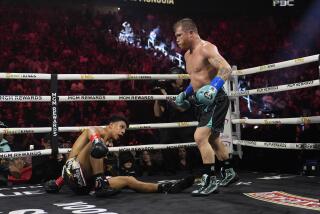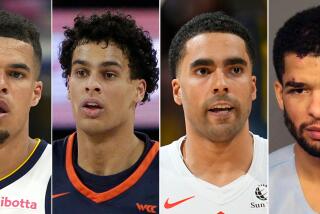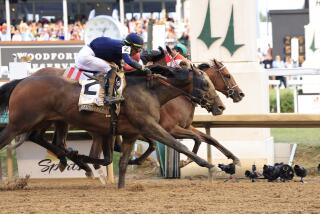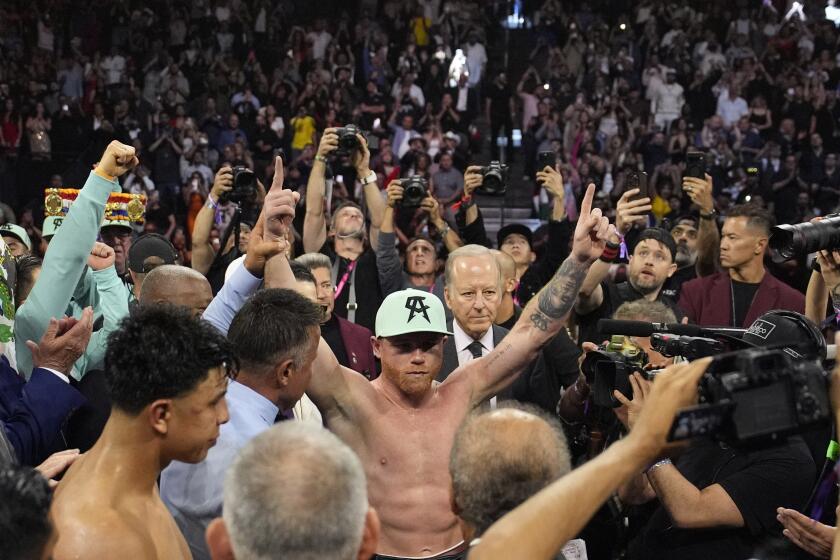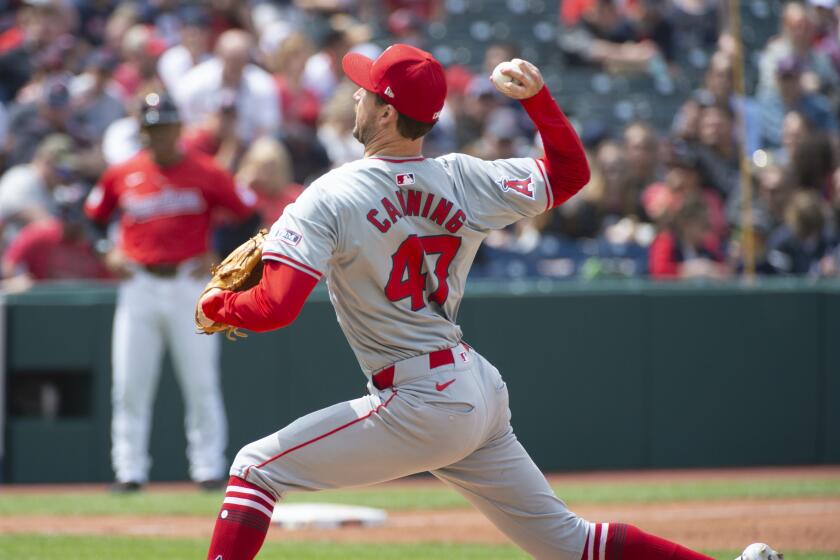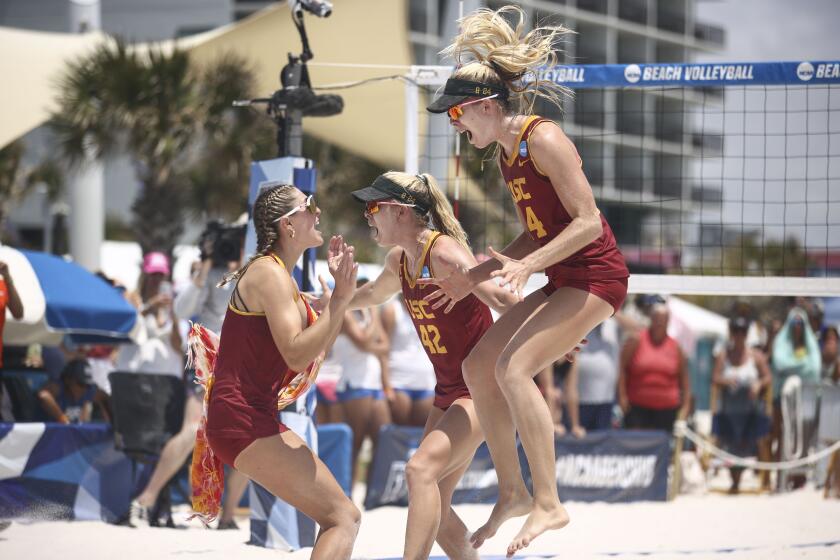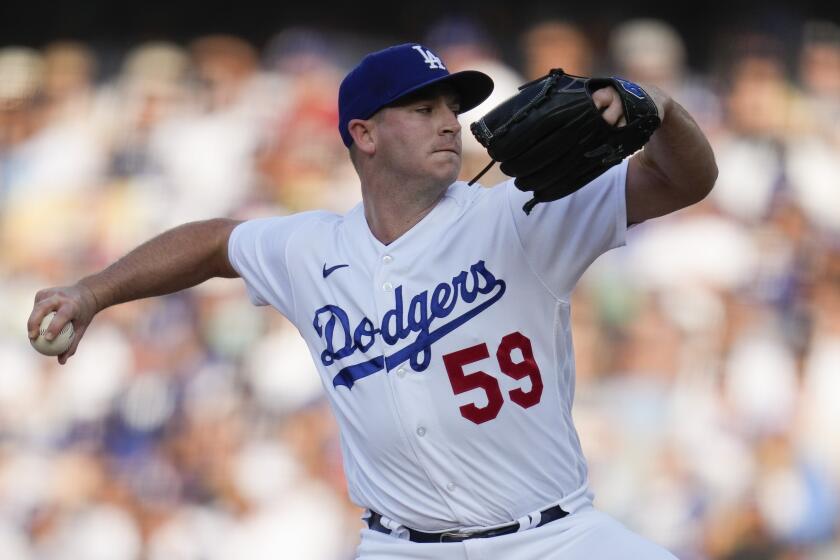Troon Has Already Bitten the Shark
The last time the British Open was played at Royal Troon, Greg Norman made a final-round charge that seemed destined to give him a second Open title. By the end of the day, his run at a major championship strayed down the same frustrating path that has left him with eight runner-up finishes in majors.
With the Open returning to the course just south of Glasgow this week, the local golfing faithful have been busy recounting Norman’s roller-coaster final round of the 1989 tournament.
On that particularly warm Sunday, Norman started the day seven strokes and 12 players behind leader Wayne Grady, a 31-year-old fellow Australian who had never been in contention for a major tournament.
But Norman birdied the first six holes to move among the leaders. With excited spectators scrambling over Troon’s dunes to catch up with Norman, Grady’s mood had quickly changed to one of dread as he teed off on the first hole.
But Grady kept an even keel for most of the day, even as Norman added three more birdies and a bogey to finish with a 64, an eight-under par and a Royal Troon course record to this day.
Norman watched the remainder of the final round on television from his hotel bed. Grady bogeyed the 17th and needed a nifty putt on the par-four 18th hole to save par and stay tied with Norman at 13 under par.
Norman wasn’t Grady’s only problem. Mark Calcavecchia, wearing a red, white and blue shirt, made a move at the 12th hole when he chipped in for a birdie. He added another birdie on the final hole to finish with a 68, moving into a tie for the lead.
“I was embarrassed,” Calcavecchia said of his unlikely shot at the 12th hole. “If it hadn’t gone in, it would have gone 30 feet past the cup. All of a sudden my spirit changed.”
By the time Grady saved par at 18, Norman had already headed from his nearby hotel room to the practice range. After shooting a 72 for the second round, Norman said he never expected to be thinking of victory two days later.
It was the first three-way tie for first in the British Open, which may seem appropriate because the threesome then embarked on another first: a four-hole playoff.
Although the playoff was the 10th in the history of the tournament, it was the first since 1975 and the first under a new format instituted in 1985. Previous playoffs were either one 18-hole round the next day or, many years ago, 36 holes the next day.
“I didn’t even know it was a four-hole playoff until right before we teed off,” said Calcavecchia, who had five victories on the PGA Tour in eight years before the ’89 Open. “That was kind of a relief.”
No one left the packed grandstands, as the threesome teed up on the first hole. The playoff would include the first, second, 17th and 18th holes, all par fours except for the par-three 17th.
Calcavecchia and Grady parred the first playoff hole, and Norman birdied.
On the second, Calcavecchia’s 30-foot putt from the fringe curled into the cup for a birdie. Norman followed with a birdie putt of about 15 feet and Grady parred the hole.
With the Shark 10 under for his last 20 holes, the tide seemed to be in his favor. (Something like a six-shot lead after three rounds in the Masters, perhaps?) But trouble struck on the 223-yard 17th. Norman was long with a three-iron, his chip rolled 10 feet past the cup and his missed putt gave him a bogey. With Calcavecchia two-putting from 50 feet for par and Grady making bogey from a bunker, Calcavecchia and Norman were tied again, Grady two shots behind.
With another playoff looming, the players headed to the 18th hole, which is 452 yards and ends at the concrete apron of the clubhouse.
Calcavecchia hit first and sailed his shot to the right, where it hit a spectator and rebounded into light rough 200 yards from the hole.
Norman then hit his drive farther than he expected, 325 yards and into a pot bunker that had rarely been reached all week. The ball landed in the forward lip of the bunker, leaving a difficult 130-yard shot to the green.
Calcavecchia hit a four-iron seven feet from the pin. Norman’s second shot landed short of the green in another bunker. He didn’t even finish the hole, taking an X on his scorecard. Calcavecchia made his birdie putt for the only victory in a major in his career; since then, he has finished no higher than tied for 11th in a major.
Norman, who had put together the best round in course history earlier in the day, was suddenly answering questions about his slide on the final two holes of the playoff. Having already lost memorable playoffs to Fuzzy Zoeller at the 1984 U.S. Open and to Larry Mize at the 1987 Masters, Norman calmly replied to every reporter.
“I was in control of my game all the way, including the playoff hole,” Norman said. “Every shot I hit in the playoffs was right off the middle of my club. Mark said he got out of jail on the 11th and 12th holes and he took advantage of his good fortune and went on to win. Destiny has a funny way of saying, ‘This is the way it’s going to be.’ ”
Calcavecchia, kissing the trophy, immediately ran to the phone to call his expecting wife, Sheryl, in West Palm Beach, Fla.
“Before I could ask, she said, ‘No, I haven’t had the baby yet,’ ” Calcavecchia said. “Believe me, it was on my mind. I just hoped I didn’t send my wife into labor with this. She was watching on TV.”
Calcavecchia has failed to duplicate his triumph in a major since 1989, though he has been a steady top-30 player. Grady has made only $9,255 on the tour this year and will miss the British Open for the second consecutive time.
Norman? He won a second British Open at Royal St. George’s in 1993 and has finished second three times in the other majors since 1989.
(BEGIN TEXT OF INFOBOX / INFOGRAPHIC)
1989 PLAYOFF
*--*
HOLE CALCAVECCHIA GRADY NORMAN 1st Par Par Birdie 2nd Birdie Par Birdie 17th Par Bogey Bogey 18th Birdie Par Picked Up
*--*
More to Read
Get our high school sports newsletter
Prep Rally is devoted to the SoCal high school sports experience, bringing you scores, stories and a behind-the-scenes look at what makes prep sports so popular.
You may occasionally receive promotional content from the Los Angeles Times.
